In today’s fast-paced world, running a small catering business is no small feat. Juggling menus, clients, and logistics can feel overwhelming, especially when your operation is streamlined but lean. That’s why leveraging catering software for small business can be a game-changer. Imagine a virtual assistant that streamlines your workflow, from catering booking to managing small catering orders. No more misplaced invoices or last-minute scrambles to fulfill an order. This article aims to explore the best catering software that can elevate your small catering business into a well-oiled machine. So, let’s dive in and discover how the right catering software can make your business more efficient, profitable, and stress-free.
Table of contents
Rentman
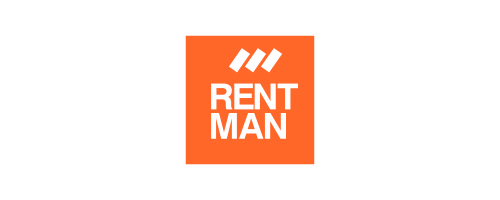
Rentman is not just another piece of catering software for small business, it’s an all-in-one platform designed to make your catering operations smoother and more efficient. Let’s break down what makes Rentman a viable choice for those in the catering business.
Pricing
- Rentman suite: Starts at €39 ($42) per month.
- Inventory solutions: Start at €14 ($15) for user + €39 ($42) flat fee per month.
- Crew solutions: Start at €9 ($10) for user + €39 ($42) flat fee per month.
Features
- Inventory Management: Say goodbye to Excel spreadsheets, Rentman handles all your inventory in one dashboard.
- Client and Team Communication: Streamline all messages and instructions in a single hub.
- Task Assignment: Easily delegate tasks to team members, saving time and reducing errors.
- Invoicing and Payment: Built-in features facilitate billing and ensure prompt payments.
Pros and Cons
| Pros | Cons |
|---|---|
| Easy to Use: The user interface is intuitive, requiring minimal training. | Pricey: May be expensive for very small operations. |
| Flexible: Adapts to various business needs, including small catering orders. | Learning Curve: Some advanced features may require time to master. |
| Time-Saving: Automated features for catering booking and task assignments. | Internet Reliance: A strong internet connection is required for optimal functionality. |
| Comprehensive: From inventory to invoicing, all aspects of your catering business are covered. | Limited Offline Features: Some features may not be accessible without an internet connection. |
Toast
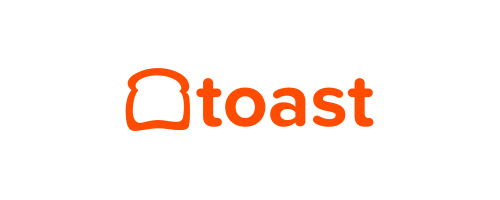
When it comes to catering software for small business, Toast is another big player in the game. Designed primarily for the foodservice industry, Toast offers a variety of features tailored to catering. Let’s dissect what makes Toast a compelling option for your small catering business.
Pricing
- Starter Pack: Starts at $69 per month per terminal.
- Essential Pack: $99 per month per terminal.
- Growth Pack: $189 per month per terminal.
Note: Additional hardware may require extra costs.
Features
- Order Management: Streamline small catering orders with precision.
- Payment Processing: Accept various forms of payment effortlessly.
- Employee Management: Time-tracking and role assignments simplified.
- Customer Relationship Management (CRM): Keep your clients close with built-in CRM features.
Pros and Cons
| Pros | Cons |
|---|---|
| Affordable: Starter pack is reasonably priced for small businesses. | Additional Costs: Hardware and add-ons can quickly add up. |
| User-Friendly: Simplified dashboard and easy navigation. | Focused on Foodservice: May lack some catering-specific features. |
| Versatile Payment Options: Accepts multiple payment methods. | Limited Customization: Options can be limited for complex tasks. |
| Strong CRM Features: Builds and maintains customer relationships. | Requires Training: Initial set-up and navigation may require time to learn. |
HoneyBook
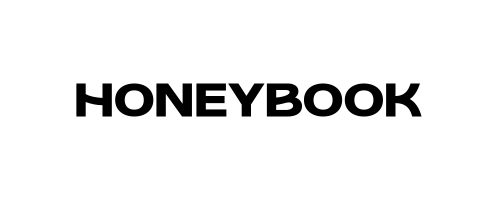
While most people associate HoneyBook with freelancers and creative entrepreneurs, this platform is also carving out a space in the catering software for small business arena. It offers a suite of tools crafted to automate various business processes, making it an intriguing option for catering business owners.
Pricing
- Monthly Plan: $40 per month.
- Annual Plan: $400 per year (saves $80 annually).
Note: Free trial available.
Features
- Client Management: Centralize all your client interactions and history.
- Contract and Invoice Templates: Streamline your catering booking and payment procedures.
- Project Tracking: Keep tabs on all your small catering orders and larger projects.
- Automated Workflows: Set automation for recurring tasks, leaving you free to focus on your catering.
Pros and Cons
| Pros | Cons |
|---|---|
| Comprehensive Client Management: All client data and interactions in one place. | Cost: Higher starting price compared to some competitors. |
| Customizable Templates: For contracts, invoices, and emails. | Not Catering-Specific: Primarily designed for freelancers and creatives. |
| Automated Workflows: Saves time on recurring administrative tasks. | Limited Integrations: May not seamlessly fit with existing software. |
| User-Friendly: Clean, easy-to-use interface. | Features Overload: Can feel overwhelming with features you may not use. |
Connecteam
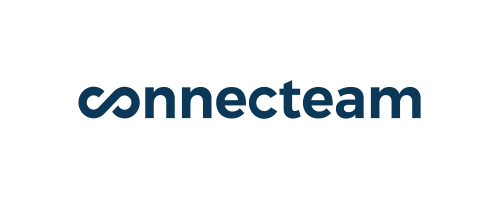
Connecteam isn’t just for the big players, it’s designed to meet the needs of any size operation, making it an intriguing option for catering software for small business. This platform offers a broad range of functionalities, allowing you to manage your team and tasks seamlessly. Let’s dissect its features and pricing to see if it’s a match for your catering business needs.
Pricing
- Free Plan: Limited features but zero cost.
- Basic Plan: Starts at $29 per month.
- Advanced Plan: Starts at $59 per month.
- Expert Plan: Starts at $119 per month.
Note: Plans are billed per team, not per user, offering greater value for larger teams.
Features
- Employee Time Clock: For accurate payroll and attendance.
- Task Management: Efficiently manage your small catering orders and larger projects.
- Internal Communication: A built-in chat feature for real-time team communication.
- Training and Onboarding: Simplify the introduction of new team members.
Pros and Cons
| Pros | Cons |
|---|---|
| Cost-Effective: One flat fee for the entire team. | Generalist Tool: Not specifically designed for the catering industry. |
| All-in-One: Offers a comprehensive set of features. | Overwhelming: Can be complex due to the breadth of features. |
| Real-Time Communication: Enhances team collaboration. | No Native Payment Processor: You’ll need a third-party tool for payments. |
| Flexible Plans: From free to expert levels, catering to varying needs. | Limited Customization: May not adapt to very specific needs. |
FoodStorm
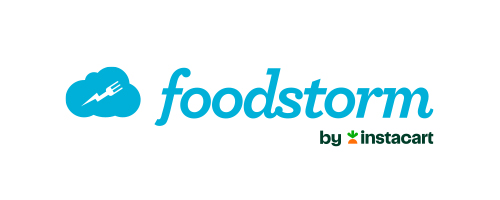
The name says it all, FoodStorm is built exclusively for the food and catering industry. With a focus on fulfilling both large and small catering orders, FoodStorm is a catering software for small business that aims to be the wind beneath your culinary wings. Let’s delve into the nuts and bolts to see if it’s the perfect gust your operation needs.
Pricing
- Custom pricing ensures you only pay for the features you need.
Features
- Order Management: Tailored for catering for business, offering ease in handling complex orders.
- Inventory Control: No more guesswork, know your stock levels in real-time.
- Customer Relationship Management (CRM): Keep your clients coming back with personalized service.
- Delivery Management: An end-to-end solution for catering booking to delivery.
Pros and Cons
| Pros | Cons |
|---|---|
| Industry-Specific: Designed exclusively for food and catering businesses. | Price Ambiguity: No fixed pricing, must contact for a quote. |
| Comprehensive: All-in-one, from CRM to inventory. | Limited Free Trial: Only offers a 14-day free trial. |
| Customizable: Pay only for the features you need. | Initial Setup: May require a longer onboarding process. |
| Strong Support: Extensive customer service and training available. | Complexity: Feature-rich but may require a learning curve. |
FAQ
Catering software is a specialized tool develop to help businesses in the catering industry manage various aspects of their operations. This system provides an array of capabilities, spanning from managing reservations and order processing to client interactions management (CRM) and stock regulation. These platforms aim to automate and streamline tasks, making it easier to run a small catering business or scale up an existing one.
When searching for the best small catering software, look for features that streamline your day-to-day operations. This includes order management to handle small catering orders, CRM for maintaining client relationships, and inventory control to manage supplies. Also, consider if it has functionalities for catering booking and payment processing.
The expense associated with catering software can significantly differ, contingent on the functionalities you require. Many platforms offer tiered pricing plans, allowing you to start small and upgrade as your business grows. Some software also provides free trials or free limited versions, helping you make an informed decision without any financial commitments.

Conclusion
Selecting the appropriate catering software for a small business is not a choice to be made casually. The marketplace presents a multitude of alternatives, each boasting its distinct mix of capabilities, cost structures, and user interactions. Whether managing minor catering requests or orchestrating a large-scale gathering, the software you opt for will evolve into a fundamental component of your business operations.






